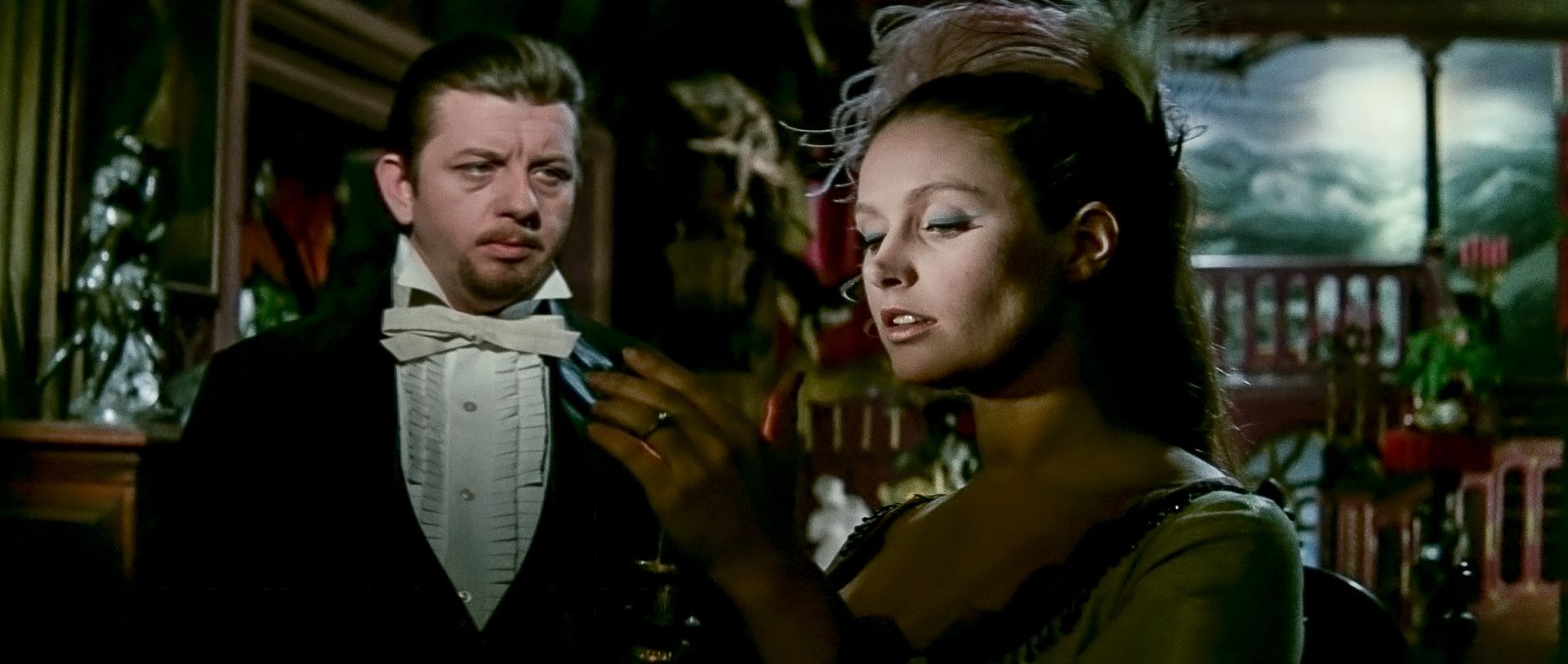tytuł oryginalny: Lalka / The Doll
reżyseria: Wojciech Jerzy Has
występują: Beata Tyszkiewicz, Mariusz Dmochowski, Tadeusz Fijewski, Jadwiga Halina Gallowa
kraj i rok produkcji: Polska 1968
czas trwania: 151'
data premiery: 1968-11-07
original language: Polish with English subtitles

Film nie należy do wiernych adaptacji jednej z najznakomitszych powieści polskiej literatury, lecz stanowi swobodną kreację w oparciu o jej wątki. Reżyser uwypuklił osobisty dramat Wokulskiego, wpisany w obyczajową mozaikę Warszawy końca XIX wieku. Cechą postaci Wokulskiego jest wewnętrzne rozdarcie spowodowane nieodwzajemnioną miłością do Izabeli Łęckiej, nieszczęściem zaś – jego nazbyt romantyczna postawa i nieporadność samotnika zagubionego w snobistycznym, groteskowym społeczeństwie, którego życie Has maluje w iście turpistycznych obrazach.
Stanislaw Wokulski (Mariusz Dmochowski), an ambitious Warsaw merchant, makes a fortune by providing supplies for the Russian army. He returns to Warsaw, expands the shop with the help of his old friend Ignacy Rzecki (Tadeusz Fijewski) and finds favor with the impoverished aristocracy. He subordinates his investments and decisions to the desire to win the love of Izabela Lecka (Beata Tyszkiewicz), a beautiful aristocrat whose father found himself in financial trouble. Wokulski duel for her, buys the Lecki’s tenement house at an inflated price, and sells his shop. He does not take into account the advice of Rzecki or Kazimierza Wasowska (Kalina Jedrusik), who sincerely supports him. He is still passionate about science, inventions, politics, but everything is obscured by his morbid ambition to impress a capricious woman. He gives her a mysterious metal, lighter than air, which he got from Julian Ochocki (Jan Machulski), his friend and a science enthusiast. Having realized her financial situation, Lecka accepts Wokulski as a potential fiancé. However, she does not change her habits. While travelling by train, the woman flirts with her cousin Starski (Andrzej Łapicki). She doesn’t care about the fact that Wokulski is next to her. Wokulski is shocked, he leaves the train and lies down on the tracks. A railwayman saves him. Wokulski disappears after this suicide incident. Rzecki dies in despair. The doll is an authorial adaptation of the novel written by Boleslaw Prus (1890). Has’ imagination influenced on the final outcome. The realistically described social relations of the 1870s was transferred to a large screen with an attractive stage design. The protagonists are marked by melancholy and weighed down by suffering, and their walks around Warsaw in the photographs by Stefan Matyszkiewicz, accompanied by the music of Wojciech Kilar, took on a dreamlike character. The film won numerous awards at the Panama Film Festival (1969): Grand Prix, an award for cinematography and male roles by Dmochowski and Fijewski